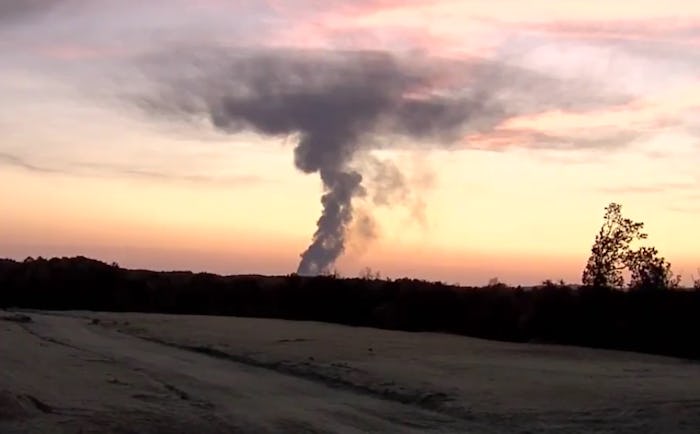News
Colonial Pipeline Explosion Follows Weeks Of Increasingly Tense Standing Rock Protests
Amid tense Standing Rock protests — which has been a months-long standoff to fight the construction of an oil pipeline under tribal lands near the Standing Rock Native American Reservation — Reuters has reported that several people have been injured due to a Colonial Pipeline explosion in a rural part of Alabama, just outside Birmingham. The pipeline exploded on Monday afternoon when a segment of the pipeline was undergoing maintenance and at least seven people were reported to have been severely burned and injured in the incident. The company has since shut down both of its main gasoline and distillates pipelines, which is now the second time the pipeline has been closed in last two months.
"Colonial has shut down its mainlines in Shelby County, Ala., after reports of a fire on its right of way," the company said in a statement. "Colonial personnel and emergency crews are responding. Colonial’s top priorities are the health and safety of the work crew on site and protection of the public."
On Sept. 9, the same company experienced an oil spill southwest of Birmingham in Shelby County, which leaked nearly 8,000 barrels of gas into a remote wildlife area and disrupted gas distribution to nearby communities for days.
Monday's blast follows months of heated protests against the Dakota Access Pipeline, although many in the Standing Rock Sioux tribe have been in opposition to the $4 billion project since it was introduced in 2014. Now, the movement has gained thousands of supporters — including many Native Americans — to fight the 1,200-mile project that would build a pipeline to transport as many as 570,000 barrels of crude oil daily from North Dakota to Illinois.
The Colonial Pipeline explosion doesn't exactly help those behind the Dakota Access Pipeline, who have insisted that they will do all they can to safeguard against any disaster, just like the recent explosions and spills in Alabama.
What happened in Alabama today is one of the main reasons why the Sioux and others are protesting the project. According to a recent Time piece on the protests, "the pipeline would travel underneath the Missouri River, the primary drinking water source for the Standing Rock Sioux, a tribe of around 10,000 with a reservation in the central part of North and South Dakota."
Coincidentally, on Monday, hundreds of thousands of people had checked in at Standing Rock Indian Reservation on Facebook. Many of the people who checked in weren't anywhere near the location, but it's been speculated that they did so to prevent local law enforcement from tracking protesters on social media.
"The Morton County Sheriff's Department has been using Facebook check-ins to find out who is at Standing Rock in order to target them in attempts to disrupt the prayer camps," one Facebook user who checked into the reservation wrote. "SO Water Protecters are calling on EVERYONE to check-in at Standing Rock, ND to overwhelm and confuse them."
The Morton County Sheriff's Department wrote on Facebook that this claim "is absolutely false," which was supported by later fact-checks, but served as a sign of support for those concerned about the environment and safety of Native lands nonetheless.
The environmental disasters that resulted from the incidents in Alabama are some of the main issues the Standing Rock protesters have against the Dakota Access Pipeline, given that the local tribes see the lands as sacred.
When you consider how even the smallest spill could devastate a community's water supply and the damage that was caused by the explosion in Alabama on Monday, it becomes a bit easier to understand why these protesters are going to such great lengths to have their voices heard.
